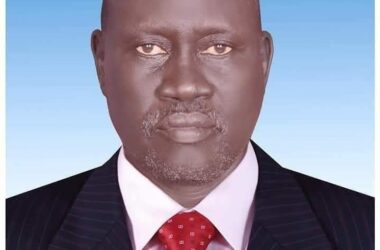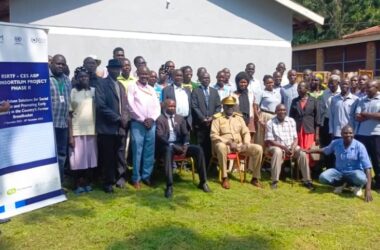By Charles K Mark
Association of Media Development in South Sudan (AMDISS) has decried limited access for independent media houses to State House J1, except state broadcaster, SSBC.
The media advocacy body also urged the press secretary in the office of the president to fulfill her promise of granting a pass for journalists from other independent media outlets access to J1.
The Chairman of the AMDISS, Koang Pal Chang, made the plea at the opening of a 2-day Media Stakeholder’s Forum on Tuesday.
Mr. Koang echoed the need for independent media organizations as well as other licensed outlets to be granted gate passes to the State House.
He said as the country nears the conduct of its first general elections, under no circumstances should the media attain public information and serve as a tool to voice voices on good governance, elections, and peaceful transfer of power, among others.
“So, I call on the honorable Lily Adhieu, the president’s press secretary, to also say that we want you to fulfill your promise. Media wants you to fulfill the promise you made earlier this year to allow credible journalists and media houses to have access to J1,” Koang recounted.
The press secretary from the office of the president had several engagements with media stakeholders and managers, dialoging about the aforementioned subject.
The resolution of some of the meetings was for media outlets to submit the names of their trusted journalists that would be attached to the State House.
It seems the media body still feels uncertain about the promise of access for independent journalists to the president’s office, making them depend on the state-owned South Sudan Broadcasting Corporation (SSBC) for any updates from the high office in the country.
“SSBC should not be the only one that should be the source of information coming from the office of the President,” the AMDISS chairperson protested.
The Bill of Rights, Chapter 2, of the Transition Constitution of the Republic of South Sudan 2011, as amended, grants the right of access to information.
Article 32 says every citizen shall have the right to access official information and records. This includes electronic records in the possession of any level of government or any organ or agency thereof.
Access to this public information must only be exempted where the release of such information is likely to prejudice public security or the right to privacy of any other person.
In her response, the presidential press secretary, Lily Adhieu Martin Manyiel, acknowledged her promise.
However, Adhieu reiterated that while requests were forwarded for media outlets to submit the names of journalists, they deemed credible enough to be attached to the big office, processes must be undertaken whereby the journalists need to be scrutinized.
“The names that were submitted by some of these media outlets are being vetted. You know these journalists will be attached to J1 to have access to information that comes from the president, and sometimes they will have to travel with the president. Therefore, the selection must undergo vetting,” she revealed.
The relationship between government and independent media equates to that of a cat and a mouse, according to the presidential press secretary.
She said though both parties intend to inform the public, no mutual agreement on the modalities to share information from the president’s office has been devised by the two parties.
“We always think the other person is in the wrong. That’s why we’re always at loggerheads. But if we come up with a solution, we’ll be able to give the public the information we need,” she said.
“It’s not a secret that free media equals functioning democracy and governance,” Adhieu noted.
Adhieu also spoke during the opening of the 2-day Media Stakeholders Forum under the theme “Building a conducive environment for independent media and safeguarding civic space in South Sudan.”
The forum organized by AMDISS with support from development partners brought together media managers, rights advocates, government actors, and senior members of the security sector to brainstorm on the above theme.




